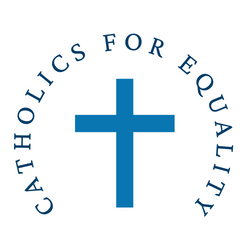While gambling is not forbidden for the Catholic faithful, it is becoming increasingly difficult to justify during Pope Francis’ papacy.
Bishops in Massachusetts came out against the expanded gambling plan in 2011. They claimed that it would encourage predatory practices that might fundamentally transform communities in the state.
However, the bishops recognized in the same statement that the Catholic Church did allow games of chance. Admittedly, the Church itself is a gambler, as evidenced by its well-publicized use of bingo games to supplement parish funds. Nowadays, it’s easy for people to gamble either on online casino platform such as casinosjungle.com or in physical establishment.
Gambling is discussed in the Catholic theology as part of a larger discussion of the Seventh Commandment, “Thou Shalt Not Steal.”
It states unequivocally that games of chance in and of themselves are not contradictory to morality. It does add a strong qualifier that gambling can become morally reprehensible however. This is in the instance of depriving someone of what is required to provide for his own and others’ needs.
When it comes to meeting the needs of others, Catholicism has a lot to say. The Catholic tradition of social thinking makes it plainly clear that the assets we have are not just ours, but are shared with others.
Pope Francis has repeatedly emphasized this idea. He has referenced Saint John Chrysostom, who said that not to share one’s goods with the poor is to steal them and deprive them of life. It is their goods that we have, not ours.
Money has long been a source of uncertainty for Catholics. On the one hand, the wealthy have had the same privileges in Catholicism as they have in any other religion. The wealthy have more access to power and influence, as well as easier access to annulments.
Poverty, on the other hand, is one of the most venerated virtues in the Catholic faith.
The virtues of the saints are often said to be discovered in their poverty. Poverty, along with chastity and obedience, is one of the vows that members of monastic organizations must take.
When it comes to public policy, Catholicism’s stance on casino gambling has typically been to make sure it doesn’t go too far.
The bishops of Pennsylvania took this stance when they addressed the issue of riverboat gambling.
The message was clear: you can gamble, but only if you’re careful. Do so with caution and within reasonable boundaries. This is the default Catholic viewpoint. Pope Francis has a strong stance on our responsibility to those in need. For that reason it’s difficult to see how gambling of any kind can be justified. Especially given that the money we casually wager is not ours alone.
Of course, at the heart of the Catholics and casino gambling debate is the question of how much Catholic ideals should be codified in civil law. The Massachusetts bishops have framed the gambling debate in terms of Catholic social teaching; but also as a broader context that considers the common interest of the state.
Given the complexity of the issues at hand and the varied constituencies of voters who will decide the gaming question, this is a prudent move. However, amid the ensuing difficult debate, it would be wise for the Catholic Church to reconsider what happens in the parish hall.
It’s a highly personal option for Catholic voters who want to reconcile the Pope’s advice with the sense of community and compassion they get from bingo.
